While commodity trading has been a longstanding practice, the emergence of online platforms like Zerodha has provided people with unprecedented access to this dynamic market. This guide will delve into the world of commodity trading in Zerodha, covering the fundamentals, approaches, and important factors for newcomers aiming to navigate this financial environment.
What is Commodity Trading in Zerodha?
Products or goods that we use daily that can be traded are known as commodities. Put differently, a commodity is any easily transportable raw material or primary agricultural product, such as coal, gold, silver, wheat, rice, and soybeans.
Buying and selling commodities is known as commodity trading, which is very important to the Indian economy. Commodity trading is not new in India, but due to weak government regulations, fragmented markets, and foreign invasions, it was unable to establish a significant presence. However, regulated markets like MCX and NCDEX entered the scene in 2003 and propelled commodity trading. Above all, investing in commodities is one way to spread your risk over a wide range of securities and diversify your asset holdings. As a result, commodity trading offers all investors a fantastic chance to investigate new asset classes.
Investment in the agricultural industry is increased with the aid of commodity trading. Thus, these expenditures may result in improved transportation and warehousing infrastructure. To protect investors, it also aids in price discovery and price hedging.
Types of Commodity Trading in Zerodha?
- Livestock: Meat, cattle, Eggs, etc.
- Metal: Copper, Aluminum, Iron, Gold or silver, etc.
- Agricultural Products: Rice, Wheat, Chana, Soya Bean, Rubber, etc.
- Energy Products: Crude oil, coal, natural gas, gasoline, etc.
How Does Commodity Trading Work?
Trade in commodities is based on supply and demand. The relationship between a product’s price and supply is inversely proportional, with demand being directly correlated with price. In addition to supply and demand, other factors that affect commodity prices include government regulations, geopolitical unrest, production costs, and the state of the world economy. Let’s say that a year’s worth of rain didn’t fall as predicted, which has an impact on the supply of wheat and raises the price of a wheat commodity. Commodity futures, options, and spots are examples of derivative contracts used in commodity trading in India.
Spot contracts involve the instantaneous trading and settlement of commodities. Commodity futures, on the other hand, are meant to trade at predetermined future prices. The buyer is required by contract to purchase the commodity at the predetermined futures rate, and they also have the option to do so. Furthermore, the seller is also subject to the same duty.
In contrast, an option contract gives the buyer the choice—but not the obligation—to purchase the good at a fixed price at a later date. Usually, a large quantity is used, such as bushels of corn, barrels of oil, or kilograms of wheat or rice. When the contract is about to expire, you have two options: accept the product in person or settle in cash by the conditions specified in the contract. Second, you can profit from changes in commodity prices even if you haven’t directly invested in futures or other derivatives by using exchange-traded funds (ETFs) or notes.
Commodity Trading Time in Zerodha
Do you recall the days when we would leave for school and begin packing our bags as soon as classes ended? You must be wondering how this trip down memory lane relates to anything. The reason is that we will be talking about time of commodity trading hours in Zerodha soon. A trader gets ready before the market opens, just like every child gets excited to go home before the final bell rings. The commodity market has set hours of operation, much like the equity market, which is open from 9:15 am to 3:30 pm.
| Zerodha Commodity Trading Time | |
| Non-agri commodities (internationally referenceable) | 9 AM-11:30 PM (daylight savings hour)
9 AM-11:55 PM (NovemberMarch) |
| Agri Commodities (International Referenceable) | 9 AM-9 PM |
| All the other agri commodities | 9 AM-5 PM |
Steps of Commodity Trading in Zerodha
Open the Zerodha Kite app or webpage on your mobile/desktop:
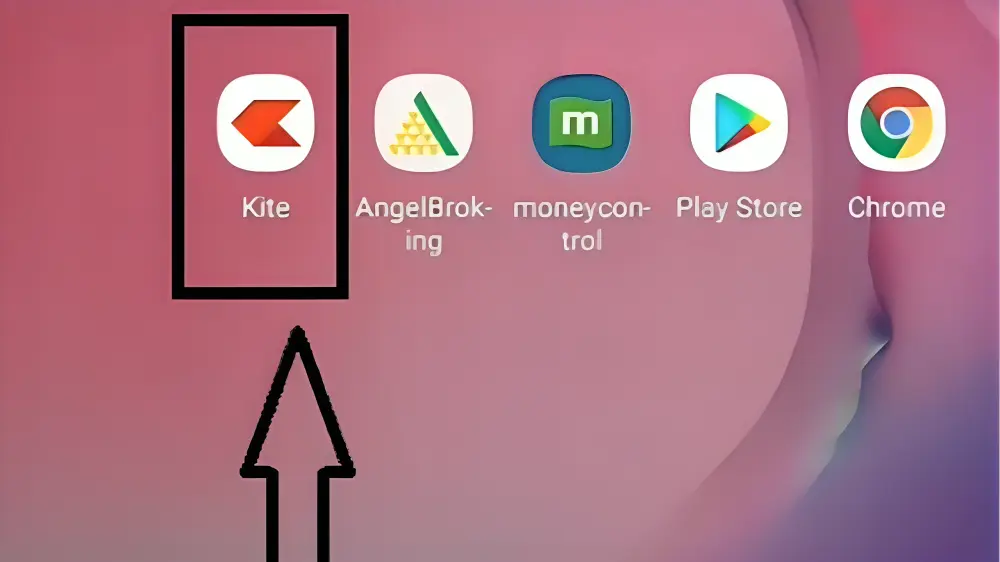
Open the Zerodha Kite app- Commodity Trading in Zerodha
Enter your login information to log in if you have the Zerodha Kite app installed on your device.
Activate Your Commodity Segment:
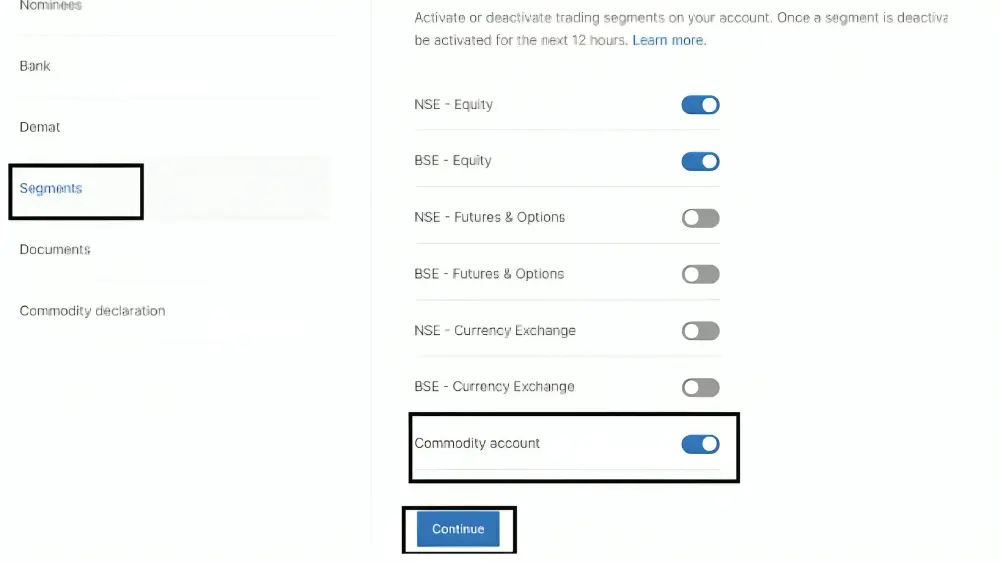
Activate Your Commodity Segment- Commodity Trading in Zerodha
After logging in, you will trade commodities for the first time. If you did not activate the commodity segment when you opened your account, please do so under the segment option in the profile section.
Add funds to Commodity Segment:
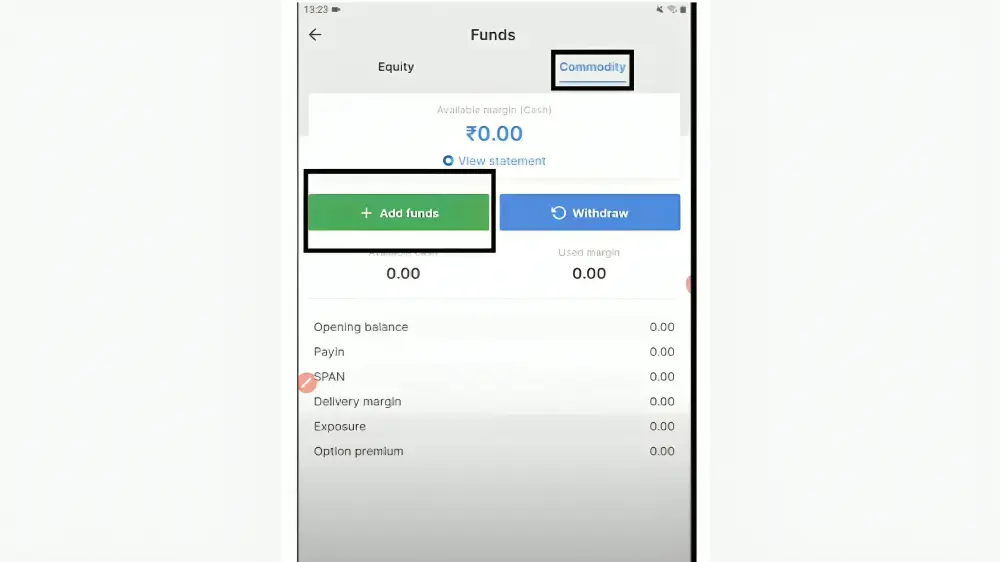
Add funds to Commodity Segment- Commodity Trading in Zerodha
You cannot use the money you currently have in the equity segment to trade commodities. Rather, you must add money to this section separately. Click on the profile and select Funds. Click on Add Funds after that.
Search for the Commodity you like to Invest in:
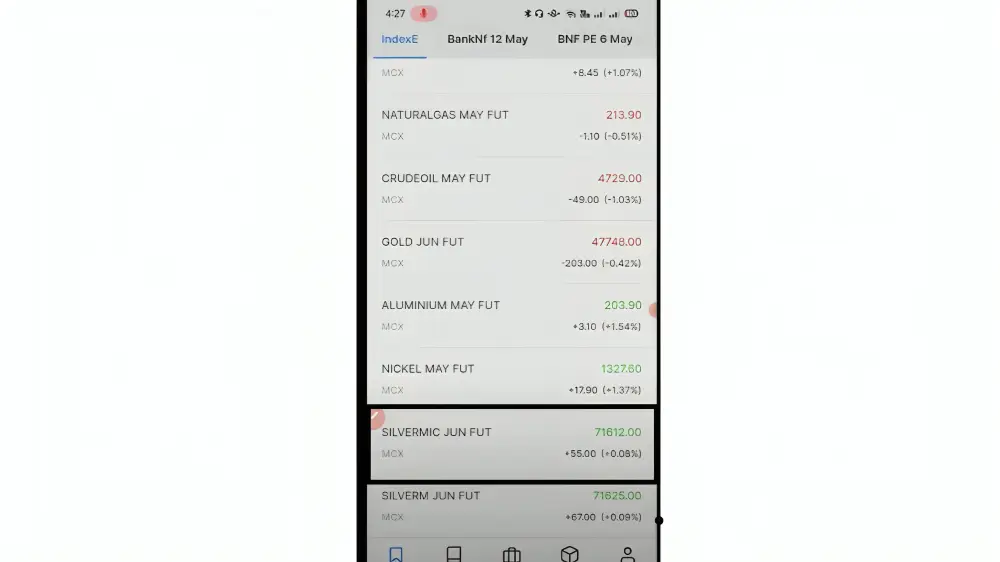
Search for the Commodity you like to Invest in- Commodity Trading in Zerodha
Look for the commodity you want to invest in on the universal search tab. For example, if you prefer to purchase Silver, select Silver MCX from the tab in the search bar.
Click on the BUY Option and Choose the required buying preference:
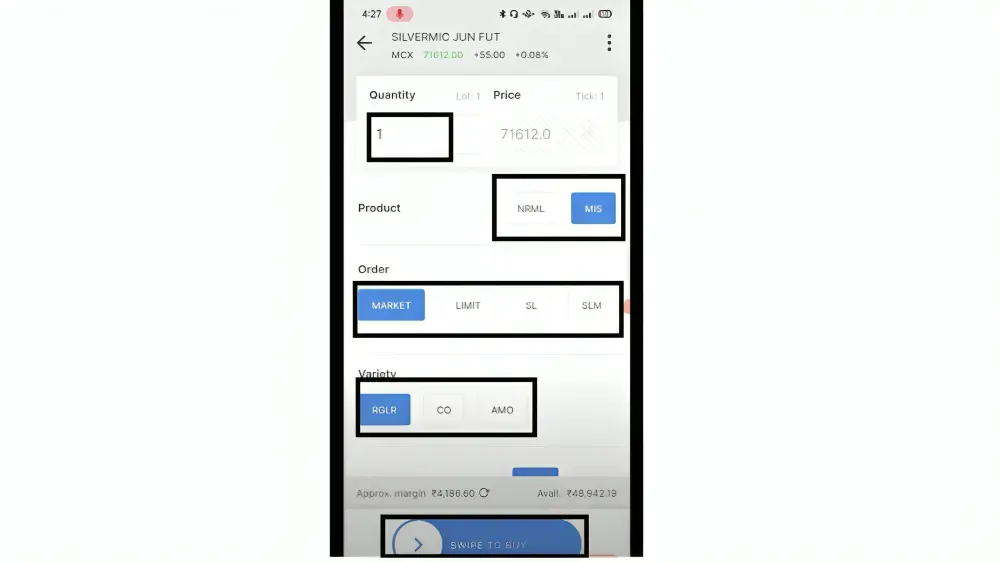
Click on the BUY Option and Choose the required buying preference- Commodity Trading in Zerodha
First, type in the number of the desired purchase quantity. Second, decide if you want to trade normally or intraday. Select NRML if you wish to hold for the future, or MIS if you want to trade intraday. If orders are limited, select the price you would like to pay. Additionally, select Day and Regular.
Click on Swipe to Buy:
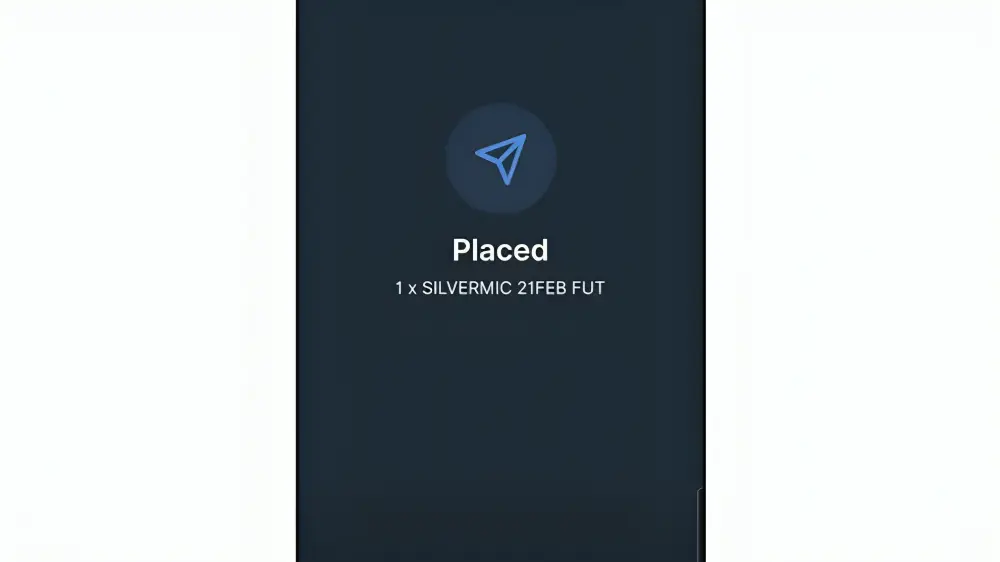
Click on Swipe to Buy- Commodity Trading in Zerodha
Click “swipe” to complete the purchase after choosing your desired method. Your order will be placed successfully with just one swipe. Commodity trading is open from 9:00 a.m. to 11:30 p.m.
Conclusion
Commodity trading in Zerodha gives investors a plethora of options to diversify their holdings and possibly increase returns. The platform appeals to both novice and seasoned traders due to its easy-to-use interface, affordable brokerage costs, and wealth of educational resources. To make wise investment choices, you must, however, approach commodity trading cautiously, carry out in-depth research, and keep up with market developments. Traders can start a profitable career in commodity trading by learning the ins and outs of commodity markets and making use of Zerodha’s features.

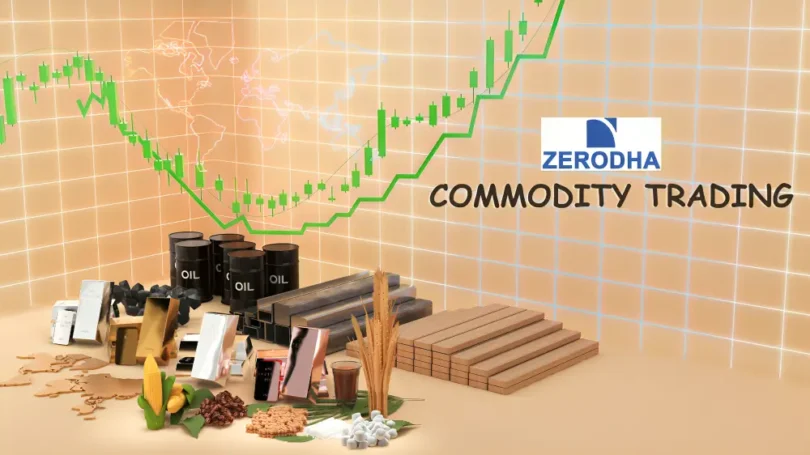






Leave a Comment